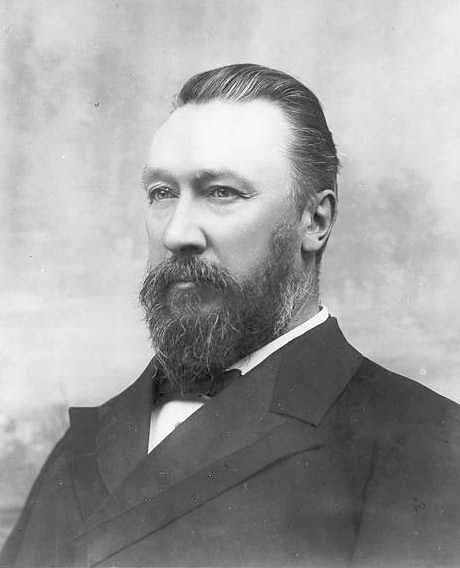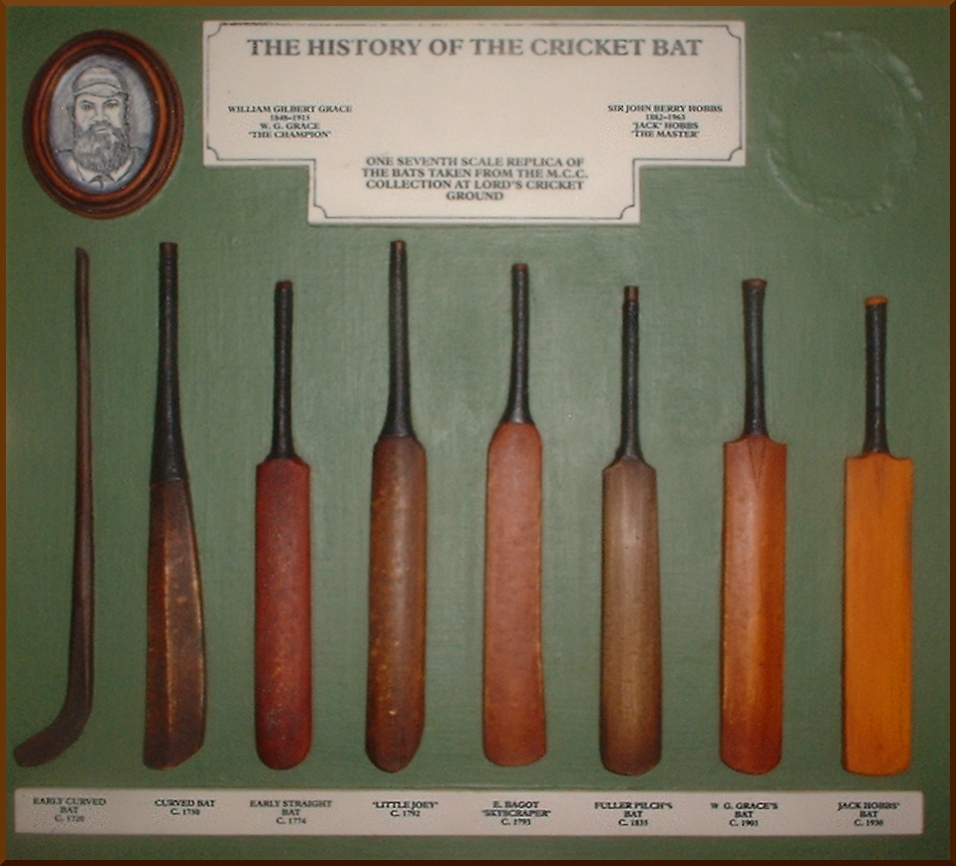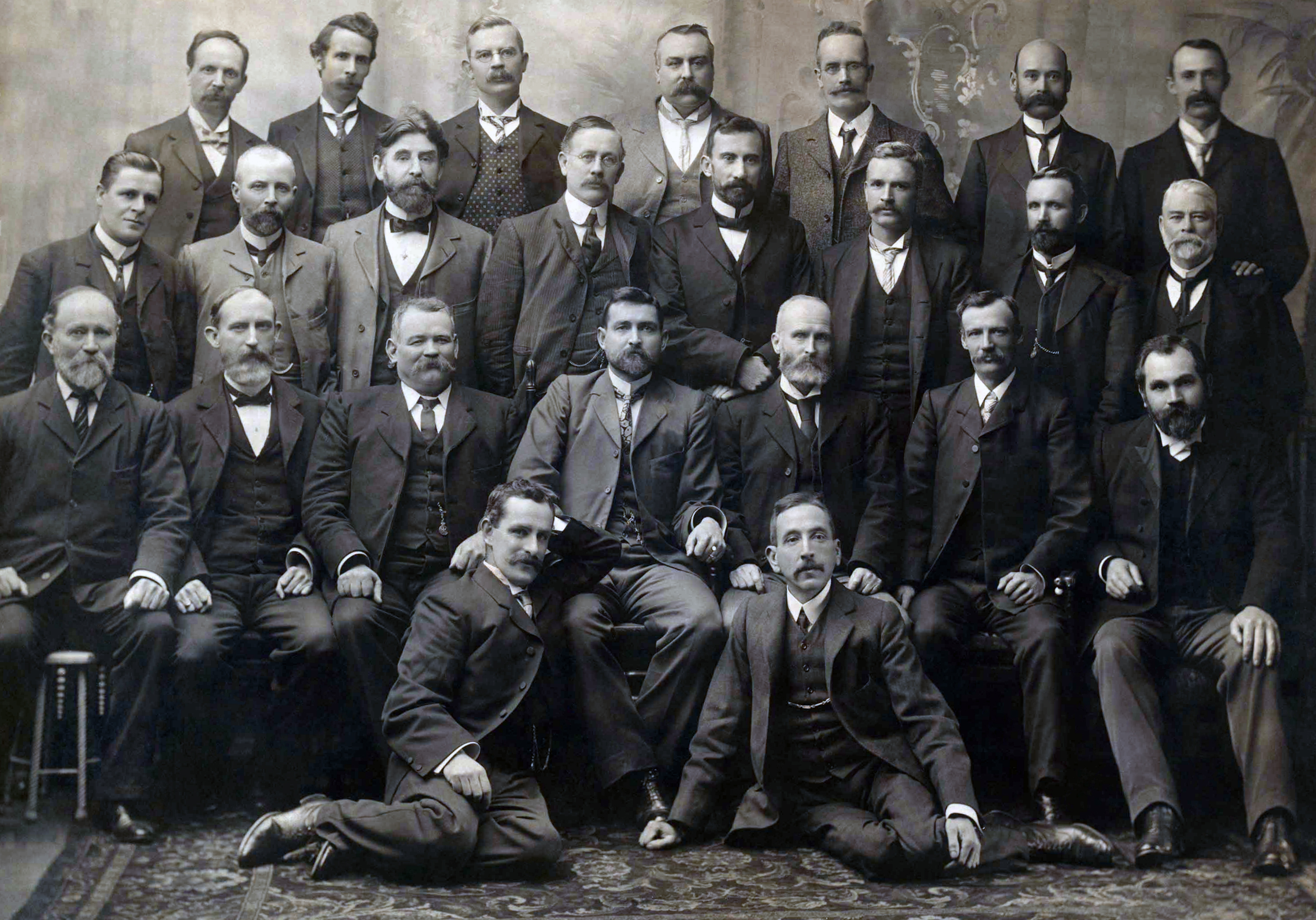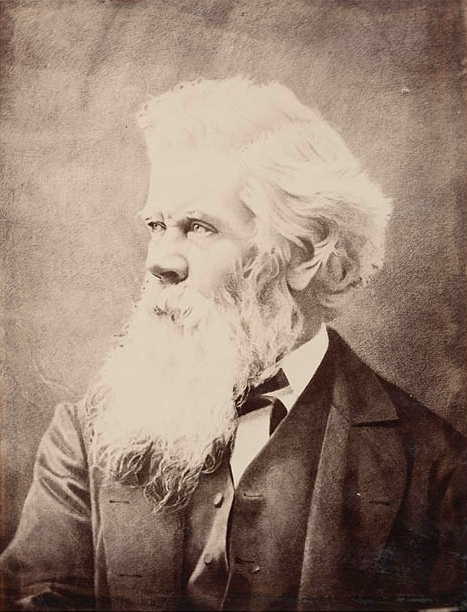|
Inter-State Commission
The Inter-State Commission, or Interstate Commission, is a defunct Constitution of Australia, constitutional body under Australian law. The envisaged chief functions of the Inter-State Commission were to administer and adjudicate matters relating to Domestic market, interstate trade. The Commission was established in 1912, became dormant in 1920, was abolished in 1950, re-established in 1983, and absorbed into the Industry Commission in 1989. Constitutional basis The Constitution of Australia contains the following provisions relating to the envisaged body: Section 73 provides that appeals on question of law, questions of law can be made on decisions of the Inter-State Commission to the High Court of Australia, High Court Background in the Constitutional Conventions At the first Constitutional Convention (Australia), Constitutional Convention in Sydney in 1891, considerable debate occurred over the issue of freedom in interstate trade, especially over the abuses arising from ... [...More Info...] [...Related Items...] OR: [Wikipedia] [Google] [Baidu] |
Industry Commission
The Industry Commission was a commission formed by the Australian government in 1990{{Cite web, url=https://nla.gov.au/nla.party-565645, title=Australia. Industry Commission. - People and organisations, website=Trove, language=en, access-date=2019-08-10 to oversee industry matters. In 1998 with the passing of the ''Productivity Commission Act 1998'' the bureau was merged with the Bureau of Industry Economics, and the Economic Planning Advisory Commission to create the Productivity Commission. References [...More Info...] [...Related Items...] OR: [Wikipedia] [Google] [Baidu] |
William Lyne
Sir William John Lyne Order of St Michael and St George, KCMG (6 April 1844 – 3 August 1913) was an Australian politician who served as Premier of New South Wales from 1899 to 1901, and later as a federal cabinet minister under Edmund Barton and Alfred Deakin. He is best known as the subject of the so called "Hopetoun Blunder", unexpectedly being asked to serve as the first Prime Minister of Australia but proving unable to form a government. Lyne was born in Van Diemen's Land, the son of a pastoral farmer. When he was 20, he and cousin took up a sheep station in North West Queensland. However, he moved back home after a few years and found work in local government. Lyne moved to New South Wales in 1875, buying a station near Albury and becoming prominent in community affairs. He was elected to the colonial New South Wales Legislative Assembly, Legislative Assembly in 1880, and first entered cabinet in 1885 under George Dibbs. He was a member of the Protectionist Party, and a m ... [...More Info...] [...Related Items...] OR: [Wikipedia] [Google] [Baidu] |
Robert Best (politician)
Sir Robert Wallace Best, KCMG (18 June 185627 March 1946) was an Australian lawyer and politician who served in both the Senate and the House of Representatives. He was a Senator for Victoria from 1901 to 1910, and then represented the Division of Kooyong in the House of Representatives from 1910 to 1922. Best served in cabinet in the second and third governments of Alfred Deakin. Before entering federal politics, he also served in the Victorian Legislative Assembly from 1889 to 1901, where he was a government minister. Early life Best was born on 18 June 1856 in Collingwood, Victoria. He was the son of Jane (née Wallace) and Robert Henning Best, immigrants from Ireland. His father was a farmer and later worked as a customs officer. Best was educated at Templeton's School in Fitzroy. He left school at 13 and became a clerk in a printing office and then worked for a solicitor where he took articles and matriculated in 1875. He studied law at the University of Melbourne and w ... [...More Info...] [...Related Items...] OR: [Wikipedia] [Google] [Baidu] |
1906 Australian Federal Election
The 1906 Australian federal election was held in Australia on 12 December 1906. All 75 seats in the Australian House of Representatives, House of Representatives, and 18 of the 36 seats in the Australian Senate, Senate were up for election. The incumbent Protectionist Party minority government led by Prime Minister Alfred Deakin retained government, despite winning the fewest House of Representatives votes and seats of the three parties. Parliamentary support was provided by the Australian Labour Party, Labour Party led by Chris Watson, while the Anti-Socialist Party (renamed from the Free Trade Party), led by George Reid, remained in Opposition (Australia), opposition. Watson resigned as Labour leader in October 1907 and was replaced by Andrew Fisher. The Protectionist minority government fell in November 1908 to Labour, and a few days later Reid resigned as Anti-Socialist leader, being replaced by Joseph Cook. The Labour minority government fell in June 1909 to the newly formed ... [...More Info...] [...Related Items...] OR: [Wikipedia] [Google] [Baidu] |
Cricket
Cricket is a Bat-and-ball games, bat-and-ball game played between two Sports team, teams of eleven players on a cricket field, field, at the centre of which is a cricket pitch, pitch with a wicket at each end, each comprising two Bail (cricket), bails (small sticks) balanced on three stump (cricket), stumps. Two players from the Batting (cricket), batting team, the striker and nonstriker, stand in front of either wicket holding Cricket bat, bats, while one player from the Fielding (cricket), fielding team, the bowler, Bowling (cricket), bowls the Cricket ball, ball toward the striker's wicket from the opposite end of the pitch. The striker's goal is to hit the bowled ball with the bat and then switch places with the nonstriker, with the batting team scoring one Run (cricket), run for each of these swaps. Runs are also scored when the ball reaches the Boundary (cricket), boundary of the field or when the ball is bowled Illegal delivery (cricket), illegally. The fielding tea ... [...More Info...] [...Related Items...] OR: [Wikipedia] [Google] [Baidu] |
Alfred Deakin
Alfred Deakin (3 August 1856 – 7 October 1919) was an Australian politician who served as the second Prime Minister of Australia, prime minister of Australia from 1903 to 1904, 1905 to 1908, and 1909 to 1910. He held office as the leader of the Protectionist Party, and in his final term as that of the Liberal Party (Australia, 1909), Liberal Party. He is notable for being one of the founding fathers of Federation of Australia, Federation and for his influence in early Politics of Australia, Australian politics. Deakin was born in Melbourne to middle-class parents. He was elected to the Victorian Legislative Assembly in 1879, aged 23, additionally working as a barrister and journalist. He held ministerial office sporadically beginning in 1883, serving twice as Attorney-General of Victoria and aligning himself with Colonial liberalism, liberal and Radicalism (historical), radical reformers. In the 1890s, Deakin became one of the leading figures in the movement for the federation ... [...More Info...] [...Related Items...] OR: [Wikipedia] [Google] [Baidu] |
Australian Labour Party
The Australian Labor Party (ALP), also known as the Labor Party or simply Labor, is the major centre-left political party in Australia and one of two major parties in Australian politics, along with the centre-right Liberal Party of Australia. The party has been in government since the 2022 federal election, and with political branches active in all the Australian states and territories, they currently hold government in New South Wales, South Australia, Victoria, Western Australia, and the Australian Capital Territory. As of 2025, Queensland, Tasmania and Northern Territory are the only states or territories where Labor currently forms the opposition. It is the oldest continuously operating political party in Australian history, having been established on 8 May 1901 at Parliament House, Melbourne, the meeting place of the first Federal Parliament. The ALP is descended from the labour parties founded in the various Australian colonies by the emerging labour movement. Co ... [...More Info...] [...Related Items...] OR: [Wikipedia] [Google] [Baidu] |
Free Trade Party
The Free Trade Party (FTP), officially known as the Free Trade and Liberal Association and also referred to as the Revenue Tariff Party in some states, was an Australian political party. It was formally organised in 1887 in New South Wales, in time for the 1887 New South Wales colonial election, which the party won. The party advocated the abolition of protectionism, especially protective tariffs and other restrictions on trade, arguing that this would create greater prosperity for all. However, many members also advocated use of minimal tariffs for government revenue purposes only. Its most prominent leader was George Reid, who led the Reid government as the fourth Prime Minister of Australia (1904–1905). In New South Wales, it was succeeded by the Liberal and Reform Association in 1902, and federally by the Anti-Socialist Party in 1906. In 1909, the Anti-Socialist Party merged with the Protectionist Party to form the Liberal Party. History The party was centred on Ne ... [...More Info...] [...Related Items...] OR: [Wikipedia] [Google] [Baidu] |
Protectionist Party
The Protectionist Party, also known as the Protectionist Liberal Party or Liberal Protectionist Party, was an Politics of Australia, Australian political party, formally organised from 1887 until 1909, with policies centred on protectionism. The party advocated protective tariffs, arguing it would allow Australian industry to grow and provide employment. It had its greatest strength in Victoria (Australia), Victoria and in the rural areas of New South Wales. Its most prominent leaders were Edmund Barton, Sir Edmund Barton and Alfred Deakin, who were the first and second Prime Minister of Australia, prime ministers of Australia. History The party was initially centred on New South Wales, where its leaders were George Dibbs and William Lyne. It dominated New South Wales colonial politics before Federation of Australia, federation. It first contested the 1887 New South Wales colonial election, 1887 New South Wales election. On the commencement of the Commonwealth of Australia ... [...More Info...] [...Related Items...] OR: [Wikipedia] [Google] [Baidu] |
1903 Australian Federal Election
The 1903 Australian federal election was held in Australia on 16 December 1903. All 75 seats in the House of Representatives, and 19 of the 36 seats in the Senate were up for election. The incumbent Protectionist Party minority government led by Prime Minister Alfred Deakin retained the most House of Representatives seats of the three parties and retained government with the parliamentary support of the Labour Party led by Chris Watson. The Free Trade Party led by George Reid remained in opposition. The election outcome saw a finely balanced House of Representatives, with the three parties each holding around a third of seats − the Protectionists on 26, the Free Traders on 24 and Labour on 22. This term of parliament saw no changes in any party leadership but did see very significant and prolonged debates, with three changes in government: the Protectionist minority government fell in April 1904 to be replaced by a minority Labour government, which lasted until August 1904 ... [...More Info...] [...Related Items...] OR: [Wikipedia] [Google] [Baidu] |
Navigation
Navigation is a field of study that focuses on the process of monitoring and controlling the motion, movement of a craft or vehicle from one place to another.Bowditch, 2003:799. The field of navigation includes four general categories: land navigation, marine navigation, air navigation, aeronautic navigation, and space navigation. It is also the term of art used for the specialized knowledge used by navigators to perform navigation tasks. All navigational techniques involve locating the navigator's Position (geometry), position compared to known locations or patterns. Navigation, in a broader sense, can refer to any skill or study that involves the determination of position and Relative direction, direction. In this sense, navigation includes orienteering and pedestrian navigation. For marine navigation, this involves the safe movement of ships, boats and other nautical craft either on or underneath the water using positions from navigation equipment with appropriate nautical char ... [...More Info...] [...Related Items...] OR: [Wikipedia] [Google] [Baidu] |







